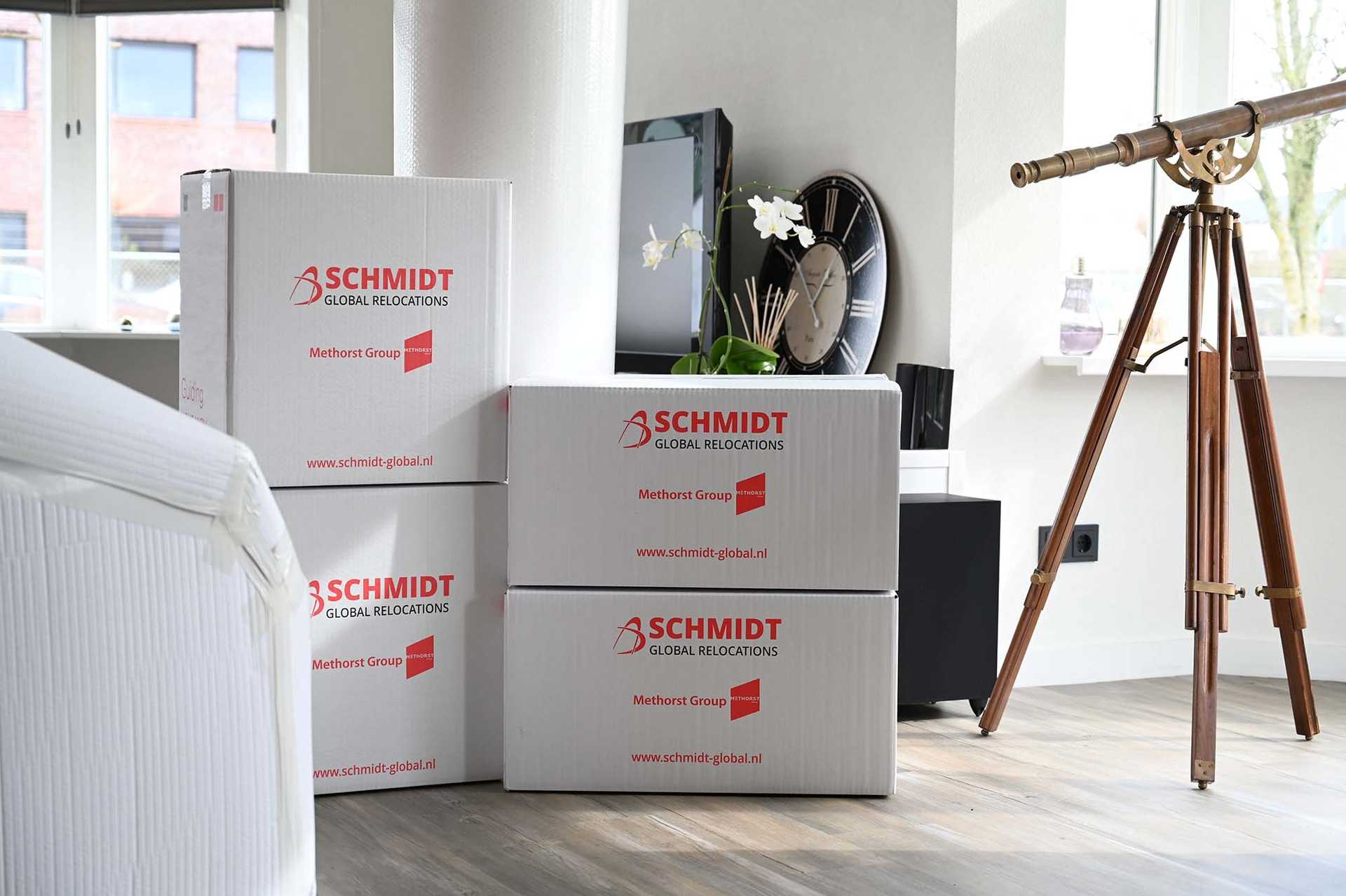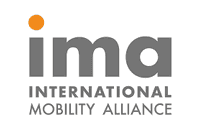
Frequently Asked Questions
How long does an international move take?
An international move takes from a few days, to 1 week or even six months, depending on origin and destination. A good planning will help minimize surprises and allow you to enjoy the move.
How do international moves work?
1. The costs of an international move are based on a few major factors;
2. The total volume of the shipment to be moved;
3. The distance to your new home;
4. The number and nature of additional services you request, such as packing, furniture disassembly and re-assembly, temporary storage, etc.;
5. The transport mode: via road, sea (FCL/LCL/Groupage) or air;
6. Combined transport or designated transport;
7. Flexibility on dates.
Can you move without a new address?
Are you certain of an upcoming move but do you not yet know where you are moving to? It is actually quite common. A moving service does not need an address to finalize plans and we can even start your move and store (in transit) everything until you have found a new place. Once you know the destination, the shipment can be scheduled for delivery.
What items can I ship internationally?
The good news is that you can ship most personal and household items internationally. This includes furniture, clothing, and other household goods.
Before your goods are being packed, it is recommended to critically look and choose the items you do not need, or can easily replace in the destination country. That way you will not pay to take the things that you do not need at the other end. Depending on the destination country, the rules for certain items vary e.g. alcohol, art etc. We can clarify and provide the information regarding rules in the destination country.
What items cannot be shipped internationally?
Several items are restricted for international shipping and they differ per country. The great thing is that these are items you are unlikely want to take anyway.
You have probably seen most of these items before boarding a flight at the airport. Think of illegal substances, flammable items, weapons, toxic chemicals, and paint. Alcohol, prescription drugs, and tobacco products are also limited/prohibited. Be informed and read carefully of what is allowed before these goods are packed as it saves time and disappointments. We have custom guides for removal goods available which you can request to your contact person.
Who will be responsible for picking up my shipment at the destination port and unloading?
When you are using our service to load and transport your goods to the nearest port for shipping overseas, a partner company will be waiting in the destination country to receive your shipment. This company is called a “ Destination or Origin Agent”. Your personal move manager will be your point of contact and will be assisted by our agents in the Netherlands and at destination.
International
shipment
Do you offer custom services?
In many countries, clearing customs requires a lot of paperwork and documentation and if this is your first experience with international moving, this can be very overwhelming. However, your move manager will help you by preparing the documents and making sure that your shipment is ready to clear customs when it arrives. Documentation is important for countries outside the European Union because there are certain “green light” destinations. The process is that the moving company needs to have all documents before shipping to provide the best assistance for the customers and to meet the transit time indications. Customers would like to have their goods on the road as soon as possible but in many cases there are factors which need planning, such as container booking and sea freight. Our partners around the world must be notified of what is arriving before the goods can be transported and the clearance can be completed.
Do I have to be present to clear customs of my goods?
This varies from country to country, so it is a very important question to ask prior to your move. Some countries require the customer who is responsible for the shipment to be present at customs in order for the goods to be cleared. If the customer is obliged to be present and fails to show up, they will often keep the shipment at the port until it clears customs, which can potentially cost you hundreds dollars more in port fees.
What storage options do you offer?
When you move internationally, you may need to store some of your goods, even if it is only temporarily, while you get settled and find a place to live. We offer storage services in our own facility in the Netherlands but we can also provide storage via partners at destination. It is always a good idea to ask about this beforehand, even if you are not sure you will need storage – a backup plan if things change during the relocation.
What kind of moving insurances do you offer?
This is one of the most important questions to ask, since moving your belongings overseas will put them at a greater risk of being damaged. It is necessary to have adequate insurance coverage for your goods. Make sure to cover your goods and protect them in the unfortunate event that they are lost or damaged. While purchasing insurance for an international move can be quite costly in comparison with a domestic move, it is worth it in the long run. Obviously, we can inform you about the options for insurance.
Which are the shipping methods?
There are three methods of transport: by road, sea or air. Which method is appropriate is dependent on location, volume to be moved, preferred time to destination and the budget available.
Moving by road
Road transports are common on mainland Europe and can be in a dedicated vehicle, or as a part-load with other consignments for the same region. This method operates in a similar way as sea consignments when sent by exclusive or groupage containers.
Moving by sea
Moving by sea is one of the most popular shipping methods for relocations overseas. Because it is sea freight it takes relatively long before the container arrives at the destination country, especially when it is on the other side of the world which should be taken into account. Whether you want to ship a just few boxes or an entire household, we assist you with multiple options so you can make the right decision for your relocation.
-
Full Container Load [FCL] (the fastest solution for large shipments)
The FCL shipping method is the most direct way to transport your belongings via sea. Your goods will not share space with other families in which the transit times will be fully optimized, will be moved together and remain secured throughout the transit, and can be brought and unloaded directly at your residence (if possible). This method is highly cost-effective because you can move your whole household. A smaller family needs a 20ft container in general, but there are also 40ft containers, 40ft High Cube and a 45ft container. The use of a 45ft container is limited as it cannot be handled everywhere in the world.
- Less Than Container Load [LCL] (the quickest solution for small shipments by sea)
When you do not have enough goods to fill up a container and prefer a shared service with the convenience of fast transit times, LCL shipping is your solution. LCL means a specific crate solely for your goods in a container via sea. Since this shipping method includes sharing space, it usually offers weekly service to all major seaports enabling the goods to be fast and near you in order to complete the clearance and delivery reducing the delivery timeframe.
- Groupage (most economical solution)
When you have flexibility in delivery times and cost is an important consideration, our groupage service is your solution. With this method you share container space with other household goods shipments moving to the same region. With regular services to Australia, the Arab Emirates, Brazil, Canada, Israel, New Zealand, the USA, South Africa and certain Asian countries, Schmidt Global can send your goods for a fraction of the costs.
It is necessary to be aware of that your goods are transported with goods of other households and there are no fixed delivery dates available beforehand. There are always possibilities which can be discussed with our representatives. Often, customers believe only their belongings are loaded and will be shipped directly but with the groupage method this is not the case. Moreover, customers can have the idea and are worried that the goods will not arrive well but with our system there is nothing to be concerned about. All household goods will be labeled and numbered and therefore we know at all time where your goods are and with whom they have been shipped.
Moving by air
(the most expensive but fastest method for smaller shipments)
Airfreight might be a good solution for your in case you need some items urgently at destination, perhaps the essentials to maintain your family while waiting for the main sea shipment. A small consignment can be cost effective. Airfreight is charged based on size or weight, whichever is the greater the costs will be calculated by the airlines. Loading in special palletized airfreight crates is the way professional companies will execute the service and minimize the weight.
We can advise you which is the most appropriate method and make all the arrangements
What is the main difference between shipping by sea and by air?
Smaller shipments that should arrive at the destination faster are good to ship by air. If you are worried about the environment, costs, and in need to ship larger items, sea shipping is for you. The biggest difference between air and sea shipping is the time factor. Usually, you pay for speed with extra charges and a bigger carbon footprint. It really depends on your personal needs and the size of your shipment.
Schmidt Global
Relocations
Internationaal verhuizen
Services
Contact
T +31 (0) 33 760 0270
E info@schmidt-global.nl
Stationsweg Oost 281 D
3931 ER Woudenberg
Nederland













